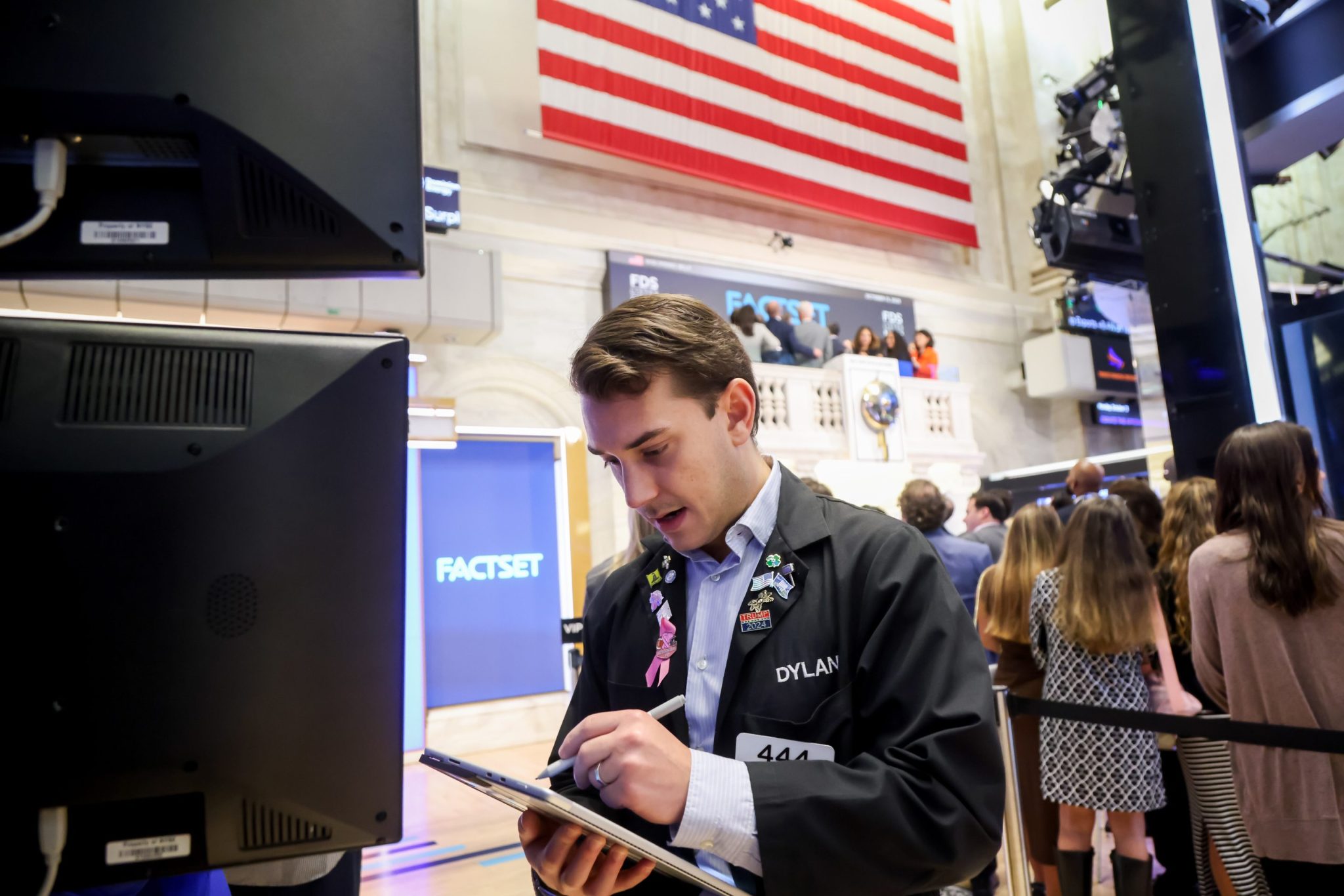
The top analyst warns that a “larger-than-expected correction is likely” if Trump and China do not come to terms

A top Wall Street analyst was predicting a “renewed rebound” after a mysterious and secretive case “rolling recession” For the past three years, he has issued a bearish call on the back of renewed trade tensions between President Trump and China. Mike Wilson, chief US equity strategist Morgan StanleyA larger-than-expected correction in US stocks is likely if Trump and China fail to resolve their escalating trade tensions, he warned on Monday, as rising uncertainty threatens a fragile early-stage bull market that began earlier this year.
Recent weeks have seen a sharp return to volatility in US stock markets, with analysts at Morgan Stanley highlighting that the sudden escalation in the US-China trade dispute has become the catalyst for the index’s weakest performance since the spring. Despite prior optimism that an agreement would be reached after fruitful discussions at the APEC summit, the talks turned tense. On Friday, the markets witnessed intense selling, especially in stocks with high exposure to China, as investors absorbed the surprising news about China on the one hand, Alleged tightening From controls on rare earth minerals, on the other hand, imposing 100% retaliatory tariffs on Chinese products from Trump’s pen on social media.
Wilson wrote Monday that the correction was “delayed” by stretched valuations, overly optimistic positions, and an unfavorable season. “If we do not see a de-escalation in the near term, we believe a larger-than-expected correction is likely,” Wilson warned, pointing to the unwinding of crowded trades and defensive rotations as evidence that institutional and retail investors are feeling nervous. Wilson believes that if the current trade battle continues into November, the S&P 500 could see declines of 10% to 15%, with certain sectors being hit harder.
Why did the escalation lead to market tension?
Uncertainty over trade policy has proven to be a major driver of stock volatility. Previously, in early 2025, a detente between Washington and Beijing paved the way for a stock rally — now the opposite seems possible. “If we move towards November 1 without a resolution, markets are likely to trade poorly,” the Morgan Stanley report warned, highlighting weak global dollar liquidity as another risk that amplifies the potential for a sell-off.
The collapse of the talks affects some sectors more than others. Semiconductors, quantum computing companies, and “crowded stocks” with direct exposure to China are seen as particularly vulnerable to a sharper correction. Consumer discretionary inventories face risks due to their dependence on imports and the direct cost impact of tariffs. Meanwhile, Morgan Stanley continues to favor defensive sectors, such as health care and the so-called “quality factor,” as a way to hedge against persistent policy uncertainty.
Wilson wrote that his team believes the correction will be larger than most expect if the trade war does not escalate, citing conversations with various market participants. Wilson reiterated his view that the bull market is still early in its cycle, rather than late, with the risk of a recession in the rearview, including “the historic speed of this recovery in stocks and earnings revisions since April.” He added that the current decline may reflect a “healthy correction,” with a risk of it intensifying over the next few weeks.
What can calm the storm?
Wilson and his team contend that if President Trump and Beijing can “kiss and make up” – perhaps with China easing some restrictions on exports and the United States scaling back major proposed tariffs – the worst could be avoided. However, in the absence of such a move, the correction could be amplified by both technical factors (such as S&P 500 support levels) and negative feedback loops in sentiment and corporate earnings revisions.
“If uncertainty and associated trading volatility persist into early November, we could see a larger correction than most people expect — 10-15% in S&P 500 terms, based on key correction levels and moving averages,” the analysts wrote. Their basic argument assumes that the recovery will resume once uncertainty subsides. However, they are quick to point out that the thesis of an early cycle bull market is at real risk if trade escalation continues, threatening global supply chains and market stability.
Trump taco ringtone
Fortunately for traders, it appears that management actually followed Wilson’s advice on Sunday and Monday. Part of what rattled markets so much on Friday was Trump’s implicit threat to cancel his face-to-face meeting with Chinese President Xi Jinping in a few weeks – which Trump backed away from in the next few days.
On Sunday, Trump was singing a different tune, recalling a favorite strategy of traders from the spring, called “Taco“Trade before Financial Times“The author of the unprotected newsletter Robert Armstrong: “Trump always chickens out.” This appears to have happened in almost record time over the weekend, with Trump pointing to the markets, saying: “Don’t worry about China“. Dao Futures jumped 400 points Sunday night Unlocked in those gains and more Within five minutes of trading on Monday, it was up more than 560 points as of press time.
At the same time, leaders are beginning to take notice of China’s enormous trump card: rare earth materials. Professor Wharton Jeremy Siegel told Fox Business on Monday It is “a shame that we do not have a strategic reserve of rare earths.”
Meanwhile, on Monday, This was announced by Jamie Dimon, CEO of JP Morgan A 10-year, $1.5 trillion plan to invest in companies with direct ties to national security. “It has become painfully clear that the United States has allowed itself to become overly reliant on unreliable sources of critical minerals, products, and manufacturing — all of which are essential to our national security,” Jamie Dimon, chairman and CEO, said in a statement. “Our security depends on the strength and flexibility of the American economy. America needs more speed and investment.”












Post Comment